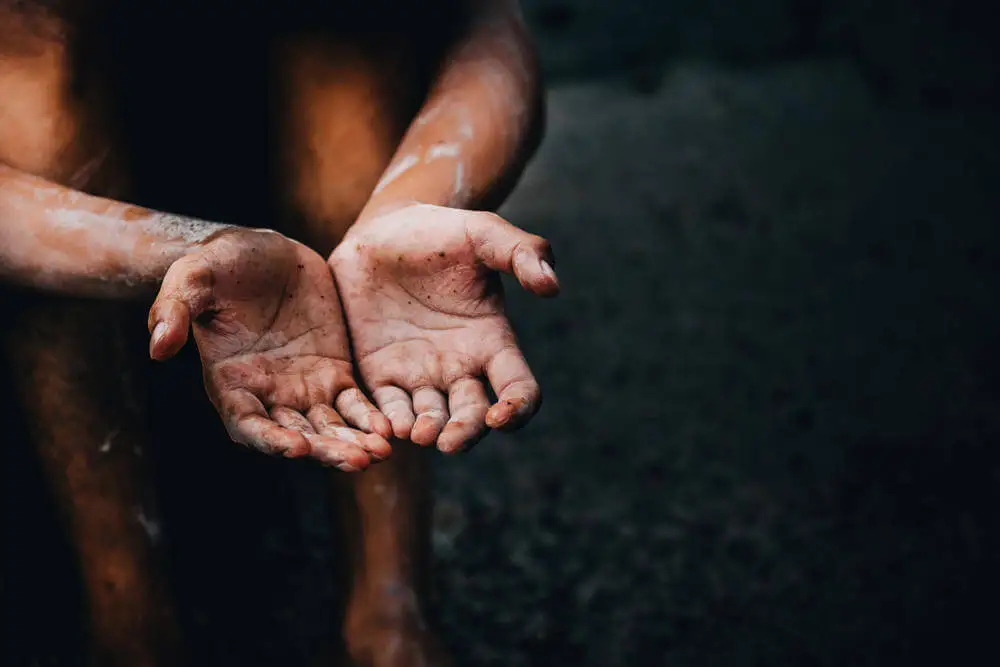Aporophobia: The Rejection of and Contempt for the Poor


Written and verified by the philosopher Maria Alejandra Morgado Cusati
Aporophobia is a neologism formed from the conjunction of two Greek terms: áporos (without resources) and fobos (fear). It means hatred, fear, disgust, or hostility towards the poor, the destitute, or the helpless.
The first to use and disseminate this new concept was the philosopher and professor at the University of Valencia, Adela Cortina, in the 1990s. Her aim was to differentiate this attitude from other discriminatory manifestations, such as xenophobia or racism. In this sense, Cortina believes that acts of xenophobia, racism, and rejection of immigrants or refugees are actually manifestations of an aversion that does not occur because of their condition as foreigners, but for the simple fact of being poor.
In 2017, the Urgent Spanish Foundation chose aporophobia as the word of the year, in order to draw attention to this phenomenon. Likewise, the term is already part of the Dictionary of the Spanish language and, in the same year, the Spanish Senate approved a motion calling for the inclusion of aporophobia as an aggravating circumstance in the Penal Code.
How is aporophobia expressed?
In everyday life, aporophobia manifests itself in a twofold attitude. Firstly, it occurs in the tendency to take sides with the better-off, from whom some benefit can be obtained; and secondly, it can be seen in the propensity to ignore the most vulnerable, who seem incapable of offering anything in return.
Therefore, for many, the rejection of immigrants is not because they are foreigners, but because they have nothing to offer. For example, no nation refuses to allow an Arab sheik to settle in its country, nor is a famous foreign soccer player denied residency. Moreover, yachts dock without problems on the rich coast of the Mediterranean, while exiles sink trying to get there.
At this point, Cortina wonders what lies behind this double standard of acceptance and rejection of immigrants. Are some rejected because they are foreigners or simply because they are poor?
The author responds to this question by stating that “the poor are rejected, even if they are from one’s own family”. In other words, the poor, instead of arousing hospitality, arouse rejection and hostility.

We think you may also enjoy reading this article: What is Agoraphobia? Learn About The Anxiety Disorder That Zac Efron Has
Possible causes
The causes of aporophobia are not very clear. However, some hypotheses have been proposed.
A xenophobic brain
Based on neuroscience, Cortina says that the brain has a xenophobic component as a survival mechanism. That is, people have a biological tendency to surround themselves with people with whom they feel more affinity.
This means that we tend to group with people who speak the same language, have a similar physiognomy, have the same culture, etc. Therefore, it’s likely that those who differ from us cause a form of rejection. The brain may interpret them as a threat.
However, this explanation alone does not justify the presence of aporophobia. It’s important to note that human beings are rational animals with a strong empathic component. We are capable of caring for others, regardless of our differences.
The absence of reciprocity
Cortina states that aporophobia is based on the principle of reciprocity and economic exchange. People have to have a utility in the system.
The poor, since they are without resources, are therefore rejected because they have nothing to offer to society under this perspective. In other words, the poor are those who do not have the tools to give back what is given to them.
Cognitive dissonance
From a psychological point of view, it has been suggested that aporophobia could also be the consequence of cognitive dissonance. This is defined as a psychological disturbance experienced when we have two incompatible ideas or behavior that is incompatible with our belief system.
In the case of aporophobia, there’s a perceived discrepancy between how someone sees themselves (“I am a good person”) and their behavior (“I don’t help or look the other way when I come across a vulnerable person”). This conflict can cause us to look for justifications to rationalize the dissonant behavior, creating reasons to reject poor people.
Like this article? You may also like to read: Gelotophobia: How to Overcome the Fear of Being Made Fun Of
Political ideologies
From an ideological point of view, neoliberal thinking (based on individualism, competitiveness, and meritocracy) assumes that success depends only on will, effort and talent and that socioeconomic circumstances have nothing to do with it.
Therefore, instead of understanding poverty as a social failure, we react by despising and blaming the poor for their situation. Or at best, we do this by assuming that they are at the very least a little bit responsible for them.
Social and personal impacts
Aporophobia is a phenomenon that feeds the vicious circle of exclusion and marginalization. Firstly, this is because it has a negative impact on people’s self-esteem, which feeds back into the spiral of degradation.
Secondly, this is because rejection hinders socio-labor reintegration. Poverty is assumed as a permanent and immutable feature of people’s identity.
The discourse based on aporophobia results in the dehumanization and objectification of people. Its most severe version can provoke verbal or physical violence, with mockery, insults, humiliation, or physical aggression.
In turn, such aggression has a severe impact on the mental health of the victims, who often experience a sense of helplessness and vulnerability, fear, anxiety, depression, or even suicidal ideation.

How to overcome aporophobia
Adela Cortina proposes that the best way to end aporophobia is through formal and informal education (schools, universities, the media, and social networks). Compassion and altruism should be cultivated there.
Meanwhile, we must dismantle the false belief that the poor have nothing to offer. Cortina affirms that there is no human being who is not capable of offering something valuable. If we are not able to see it, it’s because we must sharpen our eyesight.
Compassion and empathy are nullified when we believe that the poor are to blame for their poverty. This is why, in order to achieve a more compassionate world, we must question and rethink our own belief system.
The ideology that poverty is not the result of structural conditions, but the result of indolence, individual error, or personal guilt, encourages the poor to be perceived as a threat. Thus, blaming them only encourages them to be ignored – or worse – even persecuted.
All cited sources were thoroughly reviewed by our team to ensure their quality, reliability, currency, and validity. The bibliography of this article was considered reliable and of academic or scientific accuracy.
- Cortina A. Aporofobia, el rechazo al pobre: Un desafío para la democracia. Barcelona: Paidós, 2017.
- Del Prado, L. (2019). Adela Cortina: Aporofobia, el rechazo al pobre. Comunitania: Revista internacional de trabajo social y ciencias sociales, (17), 161-164.
- Esquembre, C. O. (2019). La aporofobia como desafío antropológico. De la lógica de la cooperación a la lógica del reconocimiento. Daimon Revista Internacional De Filosofía, (77), 215-224.
- Rojas D. Aporofobia, el rechazo al pobre. Rev. filos. [Internet]. 2018 [cosultado 19 oct 2021] 74: 319-321. Disponible en: https://www.scielo.cl/scielo.php?script=sci_arttext&pid=S0718-43602018000100319
- Valverde, E. M. P., Librero, A. B. N., Ordaz, R. G., Macho, A. Y., & González, Á. J. (2019). Detección de la discriminación hacia los pobres,«aporofobia». Miscelánea Comillas. Revista de Ciencias Humanas y Sociales, 77(151), 417-430.
This text is provided for informational purposes only and does not replace consultation with a professional. If in doubt, consult your specialist.








